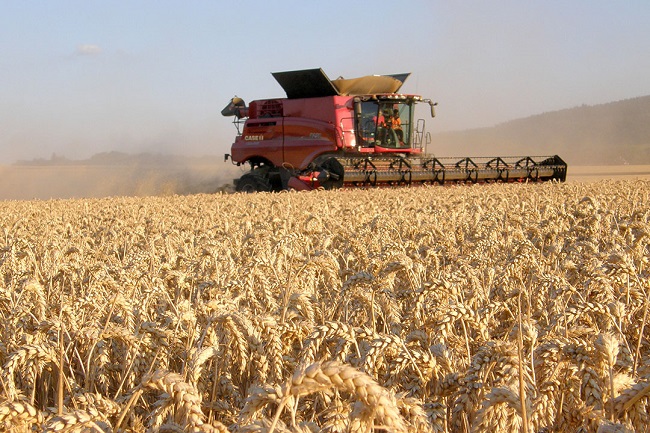A WWF report reveals that – at a time of global food insecurity – half of the UK’s wheat harvest each year (equivalent to 11bn loaves of bread) is being used to feed livestock in an “inherently inefficient” process that is fuelling climate change and driving nature’s decline in the UK and overseas.

The report reveals the extent of farmland used to grow crops that are being used to feed animals instead of people, and explores the benefits for people, climate and nature of using more of the UK’s arable land to grow crops for human consumption instead.
The latest report in WWF’s Future of Feed series highlights the fact that dairy and meat products provide only 32% of calories consumed in the UK, and less than half (48%) of protein, but – by contrast – livestock and their feed make up 85% of the UK’s total land use for agriculture.
According to the analysis in the report, growing crops like cereals to feed farm animals accounts for a significant proportion of this land use footprint:
- Wheat and barley grown to feed farmed animals in the UK uses 2 million hectares of land – 40% of the UK’s arable land area.
- Wheat grown in the UK each year to feed livestock (primarily chickens and pigs), makes up half of our annual wheat harvest and would be enough to produce nearly 11 billion loaves of bread.
- Oats grown in the UK to feed livestock each year makes up a third of our annual oat harvest and would be enough to produce nearly 6 billion bowls of porridge.
Replacing animal feeds like soy and cereal with alternatives like grass, by-products from the food supply chain, and innovative feed ingredients such as insect meal, would free up land to grow food for people, including high value crops like fruits, vegetables, and nuts, and could be at the heart of a transition to nature-friendly regenerative agriculture.
The report recognises that this approach to feeding farm animals would necessitate a reduction in overall numbers of livestock in the UK. However, with the right incentives in place, it finds that UK beef and lamb, which are largely pasture fed, could be the backbone of a nature-friendly, regenerative approach to farming.
Kate Norgrove, Executive Director of Advocacy and Campaigns at WWF said “With food prices soaring, we can’t afford to stay locked into a food system that’s not fit for purpose. Far too much of the food we eat is produced in ways that are fuelling the climate crisis and driving catastrophic nature loss, yet failing to deliver affordable, healthy food for all.”
Whilst recognising the need to reduce livestock numbers overall, the report warns that focusing purely on the carbon footprint of food production risks fuelling agricultural intensification and masking other negative environmental impacts.
It highlights the importance of looking at a wider range of measures to evaluate the environmental impact of all aspects of food production, taking account of pressures on land, water and biodiversity before drawing conclusions.
Read the full article here.
Courtesy: Climate Action
